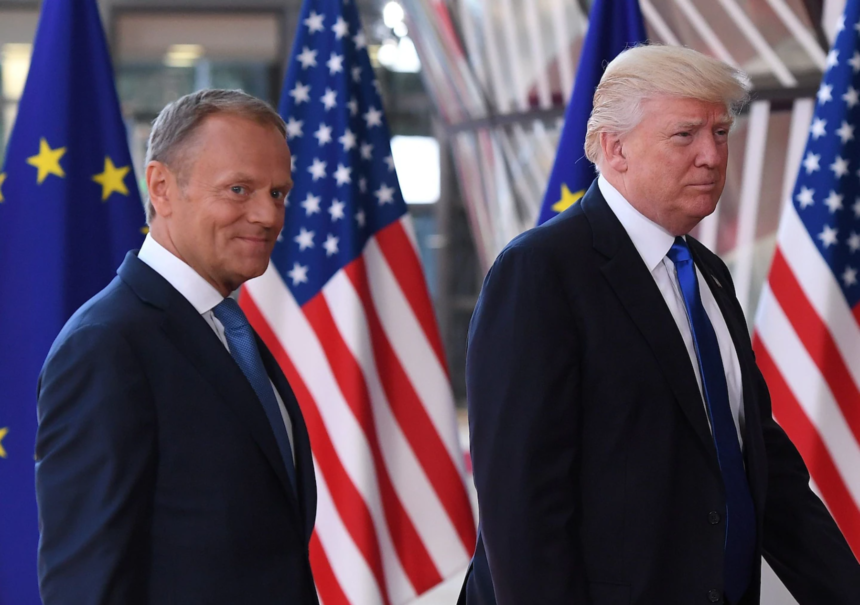With France and Germany embroiled in internal political crises and the UK outside the EU, Poland’s former prime minister, Donald Tusk, emerges as a strong contender to lead Europe’s response to Donald Trump’s anticipated return to the White House. Tusk’s extensive political experience, pro-European stance, and diplomatic network position him as a vital bridge between Europe and a potentially isolationist Trump administration, writes the Guardian.
Political Context and Tusk’s Edge
Poland assumed the EU’s rotating presidency on January 1, 2025, granting Tusk a key platform to influence the bloc’s political agenda. His close relationships with top EU and NATO leaders and his ability to maintain positive ties with the US make him a uniquely qualified mediator. Trump, who has expressed admiration for Poland, may see Tusk as a reliable European partner.
Poland and Europe’s Interests
In recent years, Poland has reasserted its role within the EU, revitalizing the Weimar Triangle (Poland, France, Germany) and strengthening ties with Nordic and Baltic nations. Poland’s substantial defense investments and active contributions to NATO have solidified its reputation as a crucial player in Europe’s security framework.
Tusk has consistently emphasized the need for Europe to become more self-reliant in defense, declaring that the “era of geopolitical outsourcing” must end. His commitment to strengthening defense cooperation and economic resilience underscores his leadership credentials in addressing Europe’s strategic challenges.
Challenges and Domestic Balancing Act
Tusk’s agenda faces hurdles, including domestic opposition and controversial positions. For instance, his support for Polish farmers protesting against open EU markets for Ukrainian products and his suggestion to suspend EU asylum rules at Poland’s eastern border have sparked criticism. Additionally, upcoming presidential elections in Poland complicate his position, as the current president, Andrzej Duda, has opposed many of Tusk’s reforms.
Despite these challenges, Tusk stands out as a European leader capable of navigating complex geopolitical dynamics. His blend of political acumen, transatlantic connections, and EU leadership could make him a pivotal figure in maintaining European unity and supporting Ukraine during potentially turbulent times ahead.







